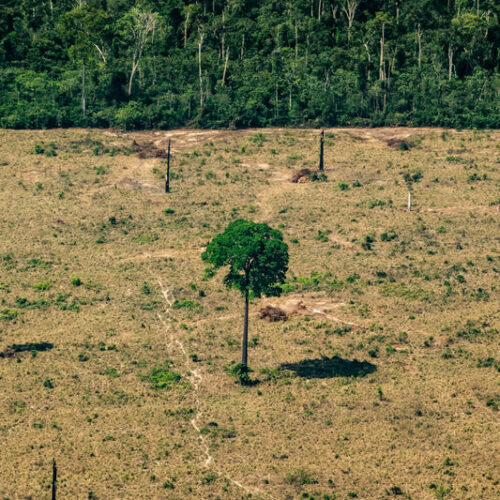The rumours that European countries would block the EU-Mercosur trade agreement due to the Brazilian environmental crisis were getting steam among european diplomats in June 2020 according to reports from El País. By late August, German Chancellor Angela Merkel said she had “considerable doubts” about her support for the agreement because of the rise in Amazon deforestation.
In September, while Brazil broke new records on forest fires and deforestation rates, the trade agreement was once again threatened, and pressure from corporations and investment funds over the Brazilian government also increased.
On the 09th, an international team of researchers from universities of Oxford (UK), Louvain (Belgium) and Columbia (USA) published a critical analysis of the EU-Mercosur agreement saying that the text of the deal does not secure mechanisms for transparency, sanction and inclusion of local communities, going against environmental regulations from the European Union. The study indicates that the agreement fails to guarantee sustainable chains of production. In that same week, the International Trade Commission from the European Parliament issued a motion demanding more protection rules on the block trade agreements, in yet another sign of the obstacles to ratifying the treaty.
A week later, on September 15th, two significant open letters tried to exert pressure on the Brazilian government. VP Hamilton Mourao received a document signed by ambassadors from 8 European nations — Germany, UK, France, Italy, Netherlands, Norway, Denmark and Belgium — with a clear message: “Brazil is making it harder and harder for corporations and investors to comply with their environmental, social and governance criteria”. The countries who sent the letter take part in the Amsterdam Declaration, a partnership among nations to promote sustainable chains of production that prevent forest destruction.
In the other letter, a coalition formed by 230 organizations and companies linked to agribusiness and environment published a set of six proposals to stop Amazon deforestation. The document was sent to president Bolsonaro, VP Mourão, Federal Ministers, leaders of the Senate and House of Representatives, and embassies and members of the European Parliament. “Not only because of the social-environmental losses, but also because of the threats that forest destruction poses to the national economy. There is a clear and growing concern about deforestation from several sectors of national and international society”, states the letter signed by the Coalition, which includes NGOs such as WWF and agribusiness companies such as JBS, Marfrig, Basf and Bayer.
Meanwhile, in France, over 20 civil society organizations issued a statement on the 16th demanding the “final burial” of the EU-Mercosur treaty because of the “disastrous impacts” on forests, climate and human rights. The NGOs manifest came out on the eve of a technical report commissioned by the French government on the effects of the commercial agreement.
On the 18th, the French government report was published. According to reports on the 184 page-study by independent experts on economy and the environment, it concludes that “the agreement is a missed opportunity by the EU to use its negotiation power to obtain solid safeguards that respond to the environmental, sanitary and social expectations of its citizens”. The experts estimate that deforestation in Mercosur countries could accelerate by 5% per year due to higher demand for beef in the EU, increasing greenhouse gas emissions and questioning whether the relative financial gains of the agreement could compensate for the climate damage it would generate.
Upon the release of the study, president Emmanuel Macron’s government confirmed it will maintain opposition to the treaty as it stands, a position they have been sustaining since 2019, and that it is willing to renegotiate the terms of the accord to secure the Paris Agreement climate objectives.
Sources:



















